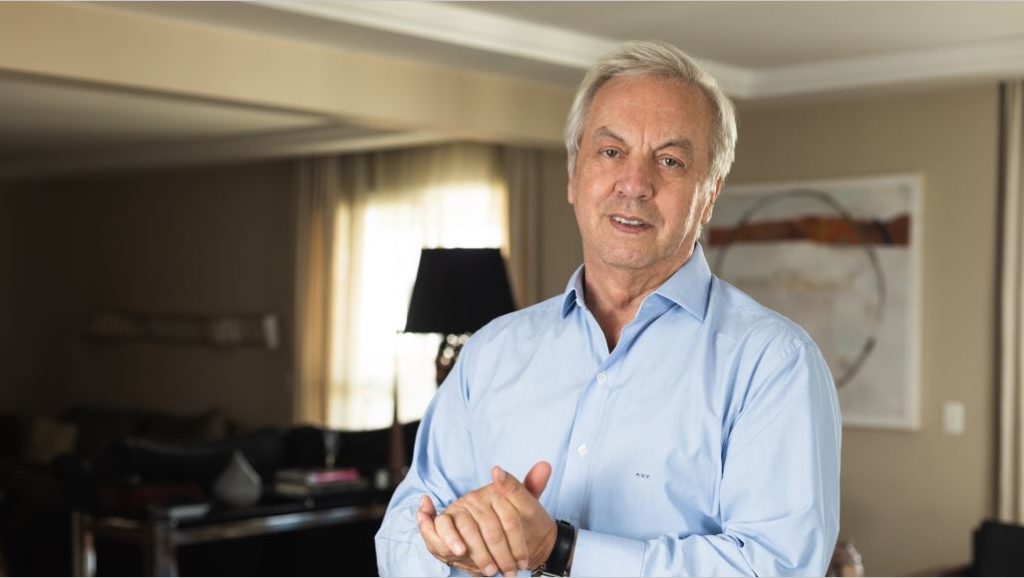 *Per Antonio Wrobleski
*Per Antonio Wrobleski
According to research by Transparency Market Research, the global logistics market could move up to 92 billion tons of goods this year (R$ 15.5 trillion). Logistics is now. But, even with this scenario, it is necessary to point out something that has already been emerging very prominently in recent times: logistics in Brazil faces several challenges due to the country's vast territory, complex infrastructure, regulatory issues and economic factors. Challenges, which, if not addressed, directly impact the profitability of companies.
If they have not yet been noticed, which is in itself a point of attention, here are some of the main challenges faced in the national territory, mainly in intermodal transport:
Infrastructure: highways, railways, ports and airports, which require significant improvements. Many regions lack adequate transport networks, with limited connectivity and higher transport costs. Poor road conditions, congestion and low port capacity can lead to delays and inefficiencies.
Geographic size and diversity: We are the fifth largest country in the world, with a diverse geography and challenging terrain. Transporting is a challenge, which makes it mandatory to rely on someone who understands the subject and specialized modes. Otherwise, the result is: more costs and complex logistics.
Regulatory environment: Difficult regulations and bureaucracy hamper operations. And along those lines are customs procedures, licensing requirements and strict labor laws, which lead to delays and administrative burdens. In addition to import taxes and fees that directly impact costs.
Safety: Cargo theft, essentially on highways, is a common problem faced by logistics companies. This not only leads to financial losses, but also disrupts supply chains and increases insurance costs.
High logistics costs: Logistics costs in Brazil tend to be high compared to other countries. These costs can be attributed to factors such as the challenges mentioned above, high fuel prices, labor costs and inefficient transportation systems. These higher costs can impact the competitiveness of Brazilian companies in both the domestic and international markets.
Limited technology adoption: Even with advances in recent years, the adoption of advanced logistics technologies, such as supply chain management systems, GPS tracking and warehouse automation, is still relatively low in Brazil. Lack of technology integration and data-driven logistics operations can lead to inefficiencies and lower productivity.
It is possible to see a movement to reverse all these negative points related to intermodal logistics, mainly with the rise of marketplaces and a portion of customers who yearn for increasingly faster and cheaper deliveries (inheritance of a post-Covid-19 pandemic society). ). It is undeniable that the pandemic, among other changes, accelerated what was already happening at a frantic pace: digital transformation. It seems corny to talk about digital transformation in an already extremely digital world in which we live, but it is necessary to pay attention to this phenomenon, because it is from this that several other changes in the relationship with the customer originate.
Investments in infrastructure, regulatory reforms and promotion of public-private partnerships are already being put into practice. However, despite this, what can be done specifically in your reality? Simple: invest in those who have expertise and contribute to the client’s operation.
According to research carried out by McKinsey, which included 124 large and medium-sized companies in different sectors, the majority of organizations analyzed have bottlenecks in four essential practices of digital transformation. Among the highlights, which need to be invested in, are a specific roadmap, which serves as the basis for an efficient analysis of results; data and analytics, with information that favors assertive decision-making; talents, that is, a prepared team; It is data-driven mindset, for increasingly strategic development.
Initiatives like this are already completely intertwined in BBM's logistics, throughout the transport chain, in order to continue ensuring quality, health, safety, mitigating risks and diseases, preserving the environment, reducing impacts on natural resources and making best choices to reduce time and increase profit from customer operations, including in agribusiness, taking into account the needs of the segment and offering speed in operations throughout the process, from harvest to delivery.
Thus, this entire strategy adopted by BBM differs in some pillars: specialized services, adapted to specific sectors; technology integration, with advanced logistics systems, cutting-edge tools for supply chain management; customer service and responsiveness, with quick problem resolution and personalized solutions; sustainability and green initiatives, with the implementation of ecologically correct practices, showing commitment to environmental responsibility; value-added services, with comprehensive solutions that go beyond traditional logistics; It is reputation and experience in the sector, proven with certifications, awards and testimonials that show satisfied customers over the years.
* Antonio Wrobleski is president of BBM Logística, partner and advisor at Pathfind. Engineer with an MBA from NYU (New York University) and also a partner at Awro Logística e Participações. He was president of Ryder in Brazil from 1996 until 2008. In 2009 he set up AWRO Logística e Participações, focusing on M&A and platform consolidation in Brazil. He was Country Manager at DHL and Executive Director at Hertz. Antonio Wrobleski's work has a very large exposure in the international market, with work in more than 15 countries in both the import and export trade. Additionally, he has been a black belt in Jiu-Jitsu for 13 years and has been practicing the sport for 30 years.
Notice: The opinion presented in this article is the responsibility of its author and not of ABES - Brazilian Association of Software Companies












